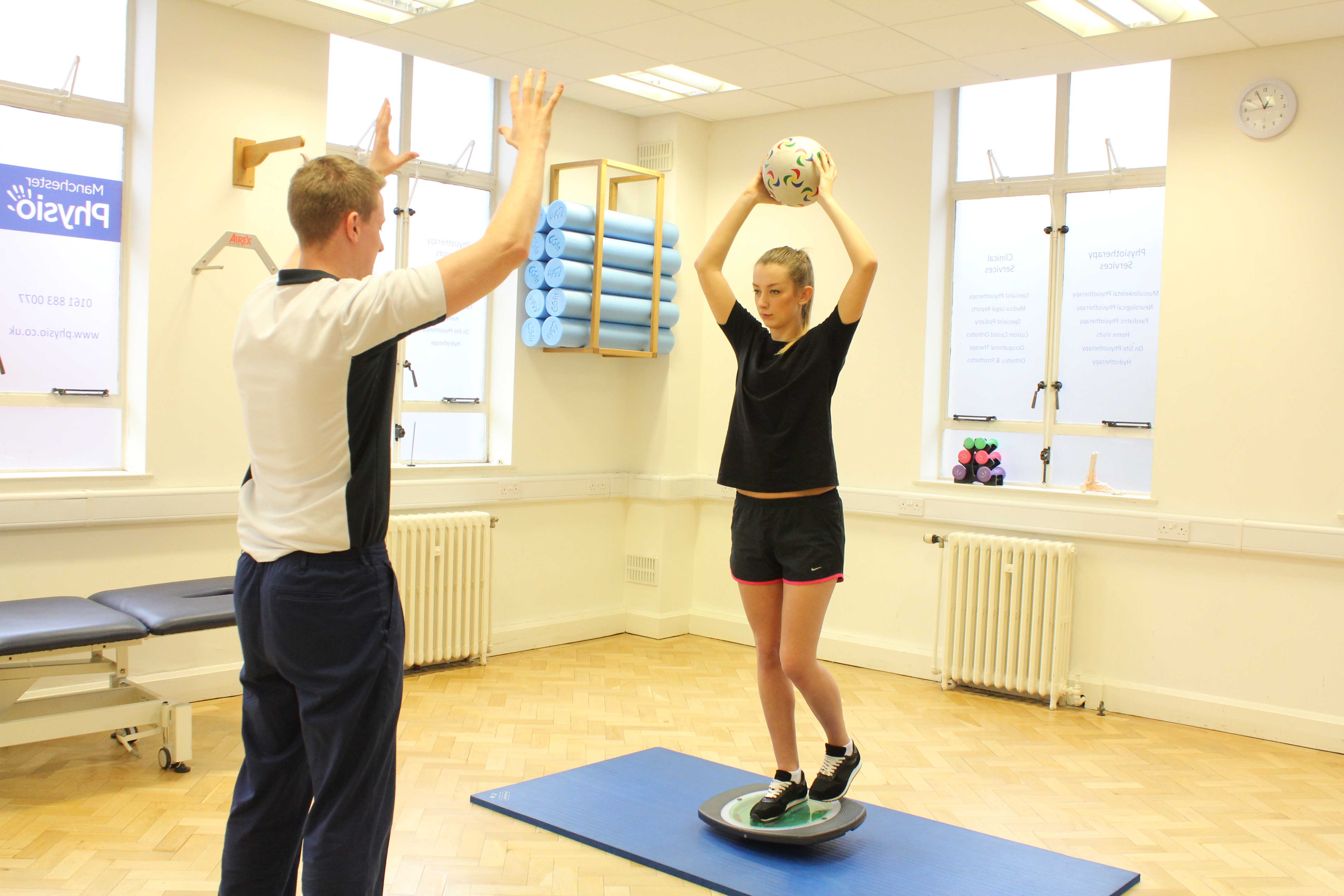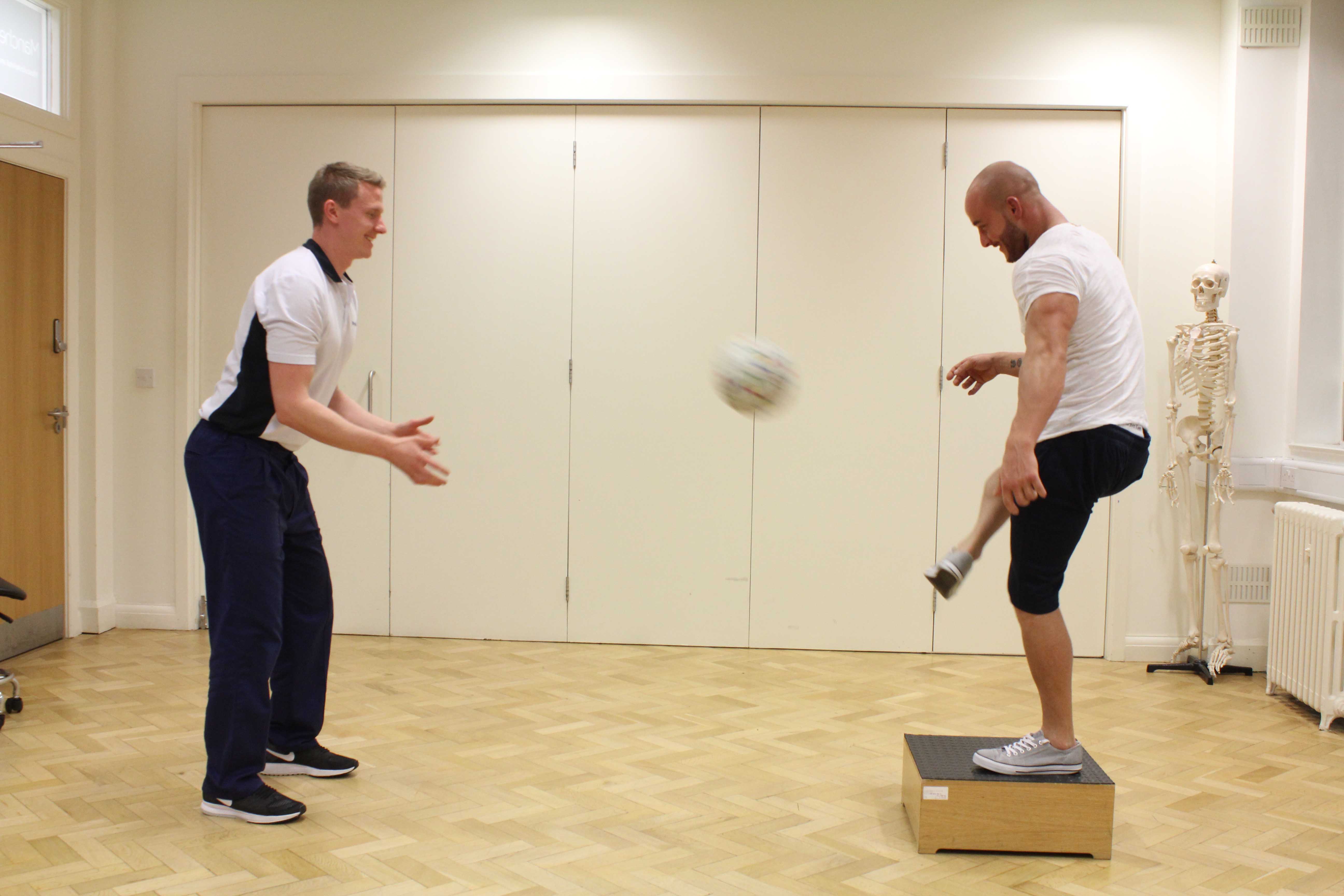nalco group
bone, muscle & joint pain physio
BOOK NOW / WHATSAPP ABOUT YOUR PAIN OR INJURY
- ORCHARD 400 Orchard Road #12-12 Singapore 238875
- TAMPINES 9 Tampines Grande #01-20 Singapore 528735
- SERANGOON 265 Serangoon Central Drive #04-269 Singapore 550265
Home > Blog > Physiotherapy > Conditions By Symptoms > Balance Problems
Balance Problems
Balance problems are when a person cannot maintain their balance within their centre of gravity. This can result in a visual postural sway.
Some of the symptoms and feelings which can be associated with balance problems are:
- Dizziness
- Wobbly
- Light headed
- Spinning
- Unsteady
- Floating
- Woozy
This feeling of diminished balance can affect a person’s ability to cope independently and safely, putting them at a greater risk of falling with potential to cause a severe injury.

Components of Balance
The main components of balance are:
- Visual - The visual system is a key part to an individual
being able to maintain balance, although can be established without. The
visual system provides the brain with visual feedback and information
on where the body is in space. This works with the vestibular and
proprioception systems.
- Vestibular – The vestibular system is found within the inner
ear. This system works with the visual system to allow the individual to
focus on objects whilst moving. Movement of the fluid within the inner
ear provides the brain with information on the speed and direction of
the movement the body is making.
- Proprioception– Proprioception provides feedback to the brain
from every part of the body. This enables the brain to establish a
picture of where the body is in space. This combined with the visual and
the vestibular systems enables the body to establish and maintain
balance.
- Musculoskeletal system– This is an essential component for establishing and maintaining balance, as the muscles, bones, joints and ligaments are needed in order to maintain a stable posture above the centre of gravity.
Balance is gained through a combination of the body systems and can be affected if there is a deficit in one or more of the systems.
What causes balance problems?
There are many potential causes that lead to problems with balance.
Any disorder of the vestibular, visual, proprioceptive and musculoskeletal systems can affect a person’s balance. Some of the causes of balance problems can include:
- Infection within the ear
- Head injury
- The aging process
- Decreased mobility
- Visual deficits – deteriorating sight, blindness
- Circulatory conditions (blood pressure)
- Medication
- Joint injury
- Vertigo
How can Physiotherapy help with balance Problems?
Our senior physiotherapists can provide a thorough assessment and provide a diagnosis with an appropriate treatment plan.
It takes time to improve balance and can have potential risks if not supervised and professional instructions are not followed. Physiotherapy can help improve balance through:
- Environmental advice
- Exercises to challenge balance
- Progression of exercise programs to improve balance
- Coaching strategies
- Signpost for medication reviews
- Musculoskeletal treatments
- Referral to an optician

What types of Physiotherapy treatments can be expected for balance problems?
There are a few different treatments available aimed at improving a person’s balance. Some of the treatments used may include:
- Balance exercises
- Proprioceptive exercises
- Mobility over different terrain
- Advice
- Walking aid provision
- Vestibular Rehabilitation
Summary
Poor balance can increase the risk of falls.
In the elderly population his can increase the risk of fractures and other serious injuries. Treatment is aimed at challenging balance, which can potentially have risks therefore should be done under the supervision of a qualified senior experienced physiotherapist. This can decrease the potential risk of falls whilst benefiting the client.
Please contact us to arrange an appointment.
